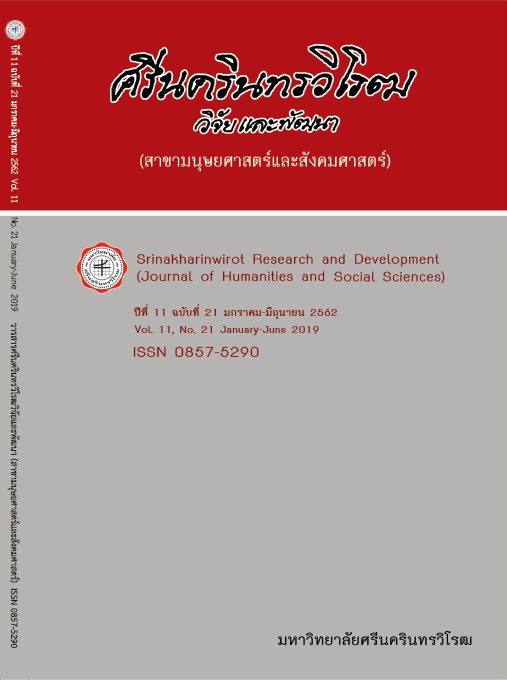การใช้ภาษีตามมูลค่าควบคู่กับภาษีเฉพาะสามารถนำไปสู่ผลลัพธ์อันพึงปรารถนาในตลาดผู้ขายน้อยรายได้อย่างไร: บทสำรวจทางทฤษฎี HOW AD VALOREM AND SPECIFIC TAXES COMBINATION CAN YIELD THE DESIRED OUTCOME IN AN OLIGOPOLY: A THEORETICAL EXPLORATION
Keywords:
Specific Tax, Ad Valorem Tax, Corrective Taxes, Ramsey TaxAbstract
This paper presents a theoretical exploration, illustrating the consequences of employing various combinations of ad valorem and specific taxes on goods in imperfect competition, such as those of the brewery and utilities sectors. Having constructed a theoretical framework for analysis, two major sets of simulations are conducted. The first illustrated the case of state-owned single firm in an economy in which Ramsey pricing is obtained. The second diverts to the case of a privately owned business governed by the state, determining the tax rates. The results indicate that there can be possible outcome close to Ramsey in privately owned business as the ad valorem tax approaches unity. Moreover, a combination of specific and ad valorem taxes can provide a tool for the government to fine-tune the desired outcome of price, quantity and, simultaneously, achieve the revenue target.
Downloads
References
[2] Myles, G. D. (1996). Imperfect competition and the optimal combination of ad valorem and specific taxation. International Tax and Public Finance. 3(1): 29-44.
[3] Myles, G. D. (1997). Public Economics. Cambridge: Cambridge University Press.
[4] Keen, M. (1998). The balance between specific and ad valorem taxation. Fiscal Studies. 19(1): 1-3.
[5] Wicksell, L. (1896). Taxation in the monopoly case. (translated) in R. A. Musgrave and Shoup, C. S. (Eds.). Reading in the Economics of Taxation. London: Allen and Unwin, 1959.
[6] Black, J., Hashimzade, N.; and Myles, G. (2009). Oxford Dictionary of Economics. Oxford: Oxford University Press.
[7] Seade, J. (1985). Profitable cost increases and the shifting of taxation: equilibrium responses of markets in oligopoly. University of Warwick Economic Research Paper, No. 260.
[8] Stern, N. (1982). Market structure, dual pricing and taxes. Development Economics Research Centre (Warwick) discussion paper No. 13.
[9] Salop, S. C.; and Scheffman, D. T. (1983). Raising rivals’ costs. American Economic Review. 73(2): 267-271.
[10] de Meza, D. (1982). Generalised oligopoly derived demand with an application to tax induced entry. Bulletin of Economic Research. 34(1): 1-16.
[11] Seade, J. (1980). The stability of Cournot revisited. Journal of Economic Theory. 20(1): 15-27.
[12] Myles, G. D. (1987). Tax design in the presence of imperfect competition: an example. Journal of Public Economics. 34(3): 367-78
[13] Myles, G. D. (1989). Ramsey tax rules for economies with imperfect competition. Journal of Public Economics. 38(1): 95-115.
[14] Myles, G. D. (1991). An assessment of recent results on the tax treatment of labour inputs and intermediate goods. Fiscal Studies. 12(4): 56-68.
[15] Newbury, D. B. (1986). On the desirability of input taxes. Economics Letters. 20(3): 267-270.
[16] Ebrill, L. P.; and Slutsky, S. M. (1990). Production efficiency and optimal pricing in intermediate good related industries. International Journal of Industrial Organization. 8(3): 417-442.
Downloads
Published
How to Cite
Issue
Section
License
Srinakharinwirot Research and Development Journal of Humanities and Social Sciences is licensed Under a Creative Commons Attribution-NonCommercial-NoDerivs 4.0 International (CC-BY-NC-ND 4.0) License, Unless Otherwise Stated. Please Read Journal Policies Page for More Information on Open Access, Copyright and Permissions.



